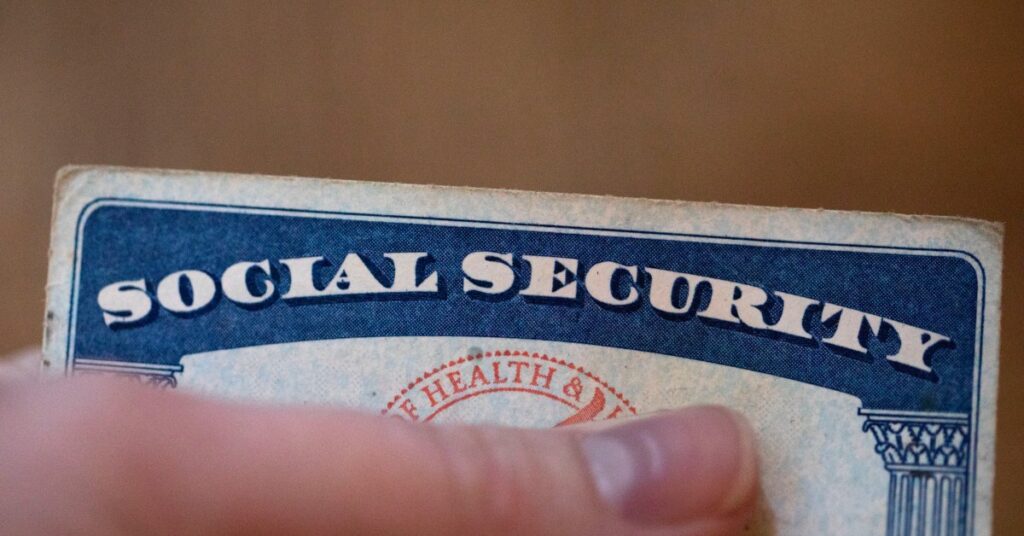In a gripping showdown that pits privacy against governmental overreach, unions are taking a stand against the Department of Government Efficiency (DOGE). They’re fighting to keep the sensitive Social Security data of millions of Americans out of DOGE’s hands. This legal battle, fueled by concerns over privacy and data security, has captured the attention of citizens nationwide. Let’s dive into the heart of the matter and explore what’s at stake.
The Unions’ Stand Against DOGE
Unions, alongside a retiree group, have launched a lawsuit aimed at preventing DOGE from accessing the personal information housed by the Social Security Administration (SSA). The crux of their argument? DOGE’s intentions remain shrouded in mystery, and the potential ramifications for privacy are enormous.
A Former Official’s Warning
Tiffany Flick, a former senior official at the SSA, has stepped forward with an affidavit that sheds light on the gravity of the situation. She warns that DOGE’s actions threaten the intricate privacy systems and processes designed to safeguard the data of millions of Americans.
“A disregard for our careful privacy systems and processes now threatens the security the data SSA houses about millions of Americans,” Flick wrote in court documents.
The Scope of DOGE’s Ambitions
The exact nature of the data DOGE seeks remains unclear. Karianne Jones, a lawyer representing the unions and the retiree group, expresses deep concern over the lack of transparency surrounding DOGE’s objectives.
“It is not fully clear what kind of access that DOGE might have to personal data about taxpayers,” Jones stated. “But the apparent scope and the lack of information about what DOGE is looking for mean the potential impact is huge.”
DOGE’s Aggressive Approach
Jones paints a picture of DOGE as an agency that’s aggressively pursuing access to vast amounts of personal data without adequate justification.
“Essentially what you have is DOGE just swooping in and bullying their way into access to millions of Americans’ private data,” Jones explained. “They cannot explain why they want this data. They can’t really tell you what data they want. They just want everything. They want the source code, and they want to do it without any restrictions.”
The Implications for Privacy
The potential consequences of DOGE gaining access to Social Security data are far-reaching. This data includes sensitive information such as personal identification numbers, employment history, and financial records. If mishandled, it could lead to identity theft, fraud, and a severe breach of privacy.
Protecting Civil Servants
Flick’s affidavit highlights the efforts of career civil servants at the SSA who are working diligently to protect this data from DOGE’s grasp. These dedicated professionals understand the importance of maintaining the integrity of the systems they oversee.
The Legal Battle Ahead
The unions’ lawsuit against DOGE is just beginning. It raises critical questions about the balance between government efficiency and individual privacy rights. As the case progresses, it will be essential to monitor the court’s decisions and the arguments presented by both sides.
Key Points of the Lawsuit
- The unions seek to block DOGE from accessing Social Security data.
- Tiffany Flick’s affidavit warns of the threat to privacy systems.
- Karianne Jones highlights DOGE’s aggressive and opaque approach.
- The potential impact on privacy is considered huge due to the lack of clarity about DOGE’s intentions.
Public Reaction and Support
The public has responded strongly to the news of this legal battle. Many Americans are concerned about the privacy of their personal information and are rallying behind the unions’ efforts to protect it.
Social media platforms have been abuzz with discussions about the case, with many users expressing their support for the unions and their fight against DOGE. Hashtags like #ProtectOurData and #StopDOGE have gained traction, reflecting the widespread concern over this issue.
Grassroots Movements
Grassroots movements have emerged, organizing petitions and letter-writing campaigns to urge lawmakers to take action. These efforts demonstrate the public’s determination to hold government agencies accountable for their handling of personal data.
The Broader Context
This legal battle is not occurring in a vacuum. It is part of a larger conversation about data privacy and government access to personal information. Recent years have seen numerous high-profile data breaches and scandals, leading to increased scrutiny of how government agencies handle sensitive data.
Legislative Responses
In response to these concerns, lawmakers have introduced various bills aimed at strengthening data privacy protections. These legislative efforts seek to establish clearer guidelines for how government agencies can access and use personal information.
However, the effectiveness of these measures remains to be seen. The outcome of the unions’ lawsuit against DOGE could set a precedent for future cases involving government access to personal data.
What’s Next?
As the legal battle unfolds, it’s crucial for the public to stay informed about developments in the case. The outcome will have significant implications for the privacy rights of all Americans.
The unions and their legal team will need to present compelling evidence to convince the court of the potential harm posed by DOGE’s access to Social Security data. Meanwhile, DOGE will likely argue that their access is necessary for improving government efficiency and serving the public interest.
Potential Outcomes
The court could rule in favor of the unions, blocking DOGE from accessing the data entirely. Alternatively, they might impose strict limitations on DOGE’s access, requiring greater transparency and oversight. A ruling in favor of DOGE could open the door to broader government access to personal data, raising further privacy concerns.
How You Can Get Involved
If you’re concerned about the privacy implications of this case, there are several ways you can get involved:
- Stay informed about the case by following reputable news sources.
- Join or support grassroots movements advocating for data privacy.
- Contact your elected representatives to express your views on government access to personal data.
- Consider signing petitions or participating in letter-writing campaigns to show your support for the unions’ efforts.
By staying engaged and informed, you can help shape the conversation around data privacy and ensure that your voice is heard in this critical debate.
Conclusion
The legal battle between unions and DOGE over access to Social Security data is a defining moment in the ongoing struggle for data privacy. As the case progresses, it will be essential to monitor developments and consider the broader implications for privacy rights in the digital age.
Regardless of the outcome, this case has sparked a vital conversation about the balance between government efficiency and individual privacy. It serves as a reminder of the importance of vigilance in protecting our personal information from potential misuse.
As we await the court’s decision, let’s remain engaged in the dialogue surrounding data privacy. By staying informed and advocating for our rights, we can help shape a future where our personal information is treated with the respect and protection it deserves.
Source: time.com

